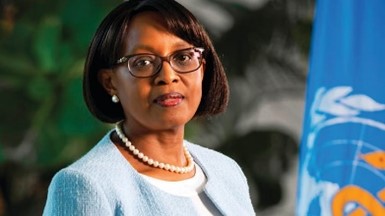Fighting Ebola, Ending Stigma-The story of survivors
 Ebola survivor Amie Subah tells her story:
Ebola survivor Amie Subah tells her story:
I contracted Ebola through midwifing a pregnant woman. Unfortunately, the woman was infected and she died of the virus as well as her baby.
Eight staff members from the clinic where I worked, including myself, got infected through that delivery. Only two of us survived after being admitted at the Ebola management center.
I returned home, but no one would welcome me back into the community. Neighbors barred my children from fetching water from their wells. Often, they would point at them because they are related to an Ebola survivor; the same with my husband. He decided to leave.
In the market, sellers refused to serve me. One told me one day that she could not risk accepting money from an Ebola survivor. I tried to convince her that Ebola survivors are no longer infectious but she wouldn’t listen. Commercial bike riders and taxi cabs refused to pick me up. I tried to sell cookies but no one could buy from me. My children and I ate all the cookies.
In a desperate attempt to convince people, I posted in public places copies of the medical certificate issued by the Ebola treatment center that officially declare me cured of Ebola. But some residents still could not believe that I was free of the virus and continued stigmatizing me. Instead of using my name, they were calling me “Ebola survivor”.
Once I visited one of my aunts in the Duport Road Community, a Monrovia suburb. She welcomed me warmly, offered me a seat and served me a bowl of rice. I ate and gave the left over rice to her daughter. My aunt suddenly took the food away the girl and dumped it right on the floor in front of me. It feels even worse when it comes from your own family.
[bsa_pro_ad_space id=1]
Then, my landlord issued an eviction notice. She was blaming me because the authorities had imposed quarantine on her house I was living in after burning all my belongings. I asked elders in my community for help but she would not listen to them and increased the rental fee so I could not afford the place anymore.
I was feeling very depressed when a longtime girlfriend finally called to invite me over. She gave me clothes and some household stuff. Then my youngest sister took me in, along with my kids. We slept in her dining room until I could rent a new place. Later a psychosocial team from MSF went to talk to my husband and he has now returned home.
I was so desperate I came really close to killing myself. But I survive. I am a survivor after all.
Amie Subah is now psychosocial assistant at the ELWA 3 Ebola Management Center in Monrovia which is being managed by the international medical charity Médecins Sans Frontières. Before contracting and overcoming Ebola, Amie worked as a midwife at MASCO Health Center in the New Hope Community, eastern Monrovia.















